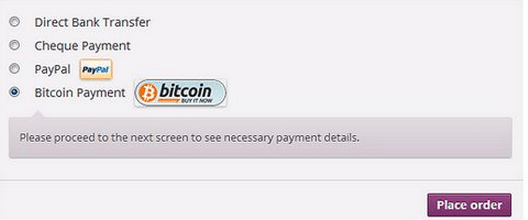The online landscape is changing—in particular in its attitude towards digital currency, also known as cryptocurrency.
2013 was the unofficial year of the cryptocurrency, with bitcoin grabbing huge amounts of mainstream attention. At the start of 2013, a bitcoin was worth approximately $13, but over the 12 months that followed it hit highs of $1,147. If you got in at the right time, you could have earned a whopping 8,000% ROI!
Recent trends have seen a surge in tech-savvy consumers calling for online retailers to accept virtual currencies, in particular bitcoin. This has a lot to do with the public’s mistrust of banks. Virtual currencies are completely decentralized, meaning there is no involvement from banks. However, there are also benefits to cryptocurrencies, including:
- No credit card required
- No foreign exchange fees
- No cash handling fees
- Reduced risk of fraud
With impressive growth rates in the forecast, cryptocurrencies are here to stay. Some experts have predicted bitcoin will tip the $2,000 mark by the end of this year.
Industry giants are starting to take notice, with big names including Fiverr, OK Cupid, and Dell now accepting bitcoin. Even Apple, who has in the past been dismissive of virtual currencies, is warming to the idea.
If major companies are now accepting bitcoin, is this something you should be considering?
What is Bitcoin?
For those of you who aren’t already familiar with bitcoin, let’s start by looking at what it actually is.
Created in 2009, bitcoin is one of many digital currencies, and by far the most popular. It uses a peer-to-peer online transaction system, which cuts out any need for the involvement of banks and other financial institutions—the first step towards creating a decentralized currency.
A powerful network of computers verifies each transaction, and records it into a giant public ledger. Every computer within this network is in sync, meaning that all computers could tell you exactly how many bitcoins exist in each user’s wallet, at any given time. This avoids any problems of double counting, and prevents users from spending coins that they don’t have.
Users can lend their own computer’s processing powers to the network, in a process called mining. In return, they receive a share of transaction fees, as well as new bitcoins drip-fed into the market.
Only 21 million bitcoins were created, and ever will be. This cap was created to avoid inflationary pressures, keeping prices stable.
So Should You Accept Bitcoin?
With all the buzz and media attention, now seems to be the perfect time to start accepting bitcoin on your website. In doing so, you become part of the buzz, and this could earn your business some extra publicity. A business accepting bitcoin is newsworthy material right now as it’s great for PR.
All the noise coming from the online community suggests they want the option of paying in bitcoin.
If big online retailers like Dell are willing to install the infrastructure needed to accept bitcoin, this is no passing fad. They won’t have taken the decision lightly, and will be confident that bitcoin will yield a positive return.
If big businesses are sold on the idea, shouldn’t we be taking notice?
If you want to increase sales, make it as easy as possible for your customers to spend. Accepting bitcoins gives your customers one more way to spend money on your site, and this can only be a good thing. Bitcoin doesn’t have to interfere with your existing payment solutions—it should be used as an addition.
With all this focus on giving the buyers what they want, it’s easy to forget that bitcoin has other benefits from a seller’s point of view. The transaction costs are much smaller than rival payment processors—typically between 0.5% and 1%—plus you minimize the risk of fraud and chargebacks.
Looking at it another way, adding bitcoin to your website should have no negative impact on your business. Some customers will love that you accept it, while some will remain uninterested. However, because your existing payment channels aren’t affected in any way, there is no reason that you should experience any drop in sales.
My advice is to test it to see how your customers react.
Bitcoin as an Investment
While some experts have predicted a rosy outlook, bitcoin is a risky investment. The market for bitcoins is highly volatile—far more so than for other major currencies, such as USD, GBP and EUR—with prices fluctuating wildly. At the time of writing, one bitcoin is worth $578, which is down from the peak of $1,147 in November, and even down from $592 from yesterday (a fall in value of 2.2% in one day).
The purpose of this article is not to encourage you to make any investment decisions relating to bitcoin. Today, I’m talking purely in terms of accepting bitcoins as an online payment method.
You could hold on to any bitcoins received, but you must understand their value could appreciate or depreciate—you could be a winner, but you could also end up a loser.
The safest option is to convert them to your own currency—it’s far more stable.
As any serious investor understands, any investment with a high potential return also involves a high degree of risk.
How to Accept Bitcoin
If you’re sold on the idea of accepting bitcoins, it’s actually really easy to get started.
If you are a WordPress user, there are a number of plugins available that make integrating a bitcoin payment gateway a breeze.
Bitcoin Payments for WooCommerce
WooCommerce is the most popular WordPress eCommerce plugin, so it’s little surprise that a number of plugins have been developed for integrating bitcoin.
The most popular is the bitcoin Payments for WooCommerce plugin.
When a user reaches your checkout, the plugin adds a bitcoin payment option under your existing options.
bitcoin payments are made directly into a personal Electrum wallet, but on the plus side you pay no fees or commission.
Coinbase
Coinbase is another plugin that allows you to accept bitcoin payments on your WordPress website.
The plugin allows you to place a “Pay with bitcoin” button anywhere on your website by using a simple shortcode, or you can place a Coinbase widget in your sidebar.
The risk averse among you won’t want to hold bitcoins for any longer than necessary—the price of bitcoin still fluctuates wildly. Coinbase gives you the option to convert your bitcoins into USD immediately after each transaction, giving it a distinct advantage over other plugins.
Transactions in bitcoins are completely free, however Coinbase does charge you 1% + $0.15 to convert your bitcoins into USD.
WordPress Bitcoin
The WordPress Bitcoin plugin enables a bitpay payment gateway on your website, allowing you to accept bitcoins.
The plugin supports a dedicated bitcoin checkout process. Customers simply click on a button to checkout using bitcoins. All transactions in bitcoins can be tracked directly from your WordPress dashboard.
The plugin automatically converts prices to bitcoins using the latest exchange rate, ensuring you get maximum value.
Wrapping Up
With all the hype surrounding bitcoin, along with the ease of integrating it into your existing checkout process, it’s definitely worth considering the merits of accepting bitcoin payments on your website.
Digital currencies like bitcoin seem to be here for the long haul—this idea is reinforced every time a big online retailer moves to accept bitcoins, which is slowly changing the expectations of online consumers.
Soon, accepting cryptocurrencies could become a minimum requirement for doing business online. Is it worth getting ahead of the game by accepting them today?
Do you accept bitcoin on your website? What are your experiences with it?
 Shaun Quarton is a freelance blogger from the UK, with a passion for online entrepreneurship, content marketing, and all things WordPress.
Shaun Quarton is a freelance blogger from the UK, with a passion for online entrepreneurship, content marketing, and all things WordPress.




5 Comments